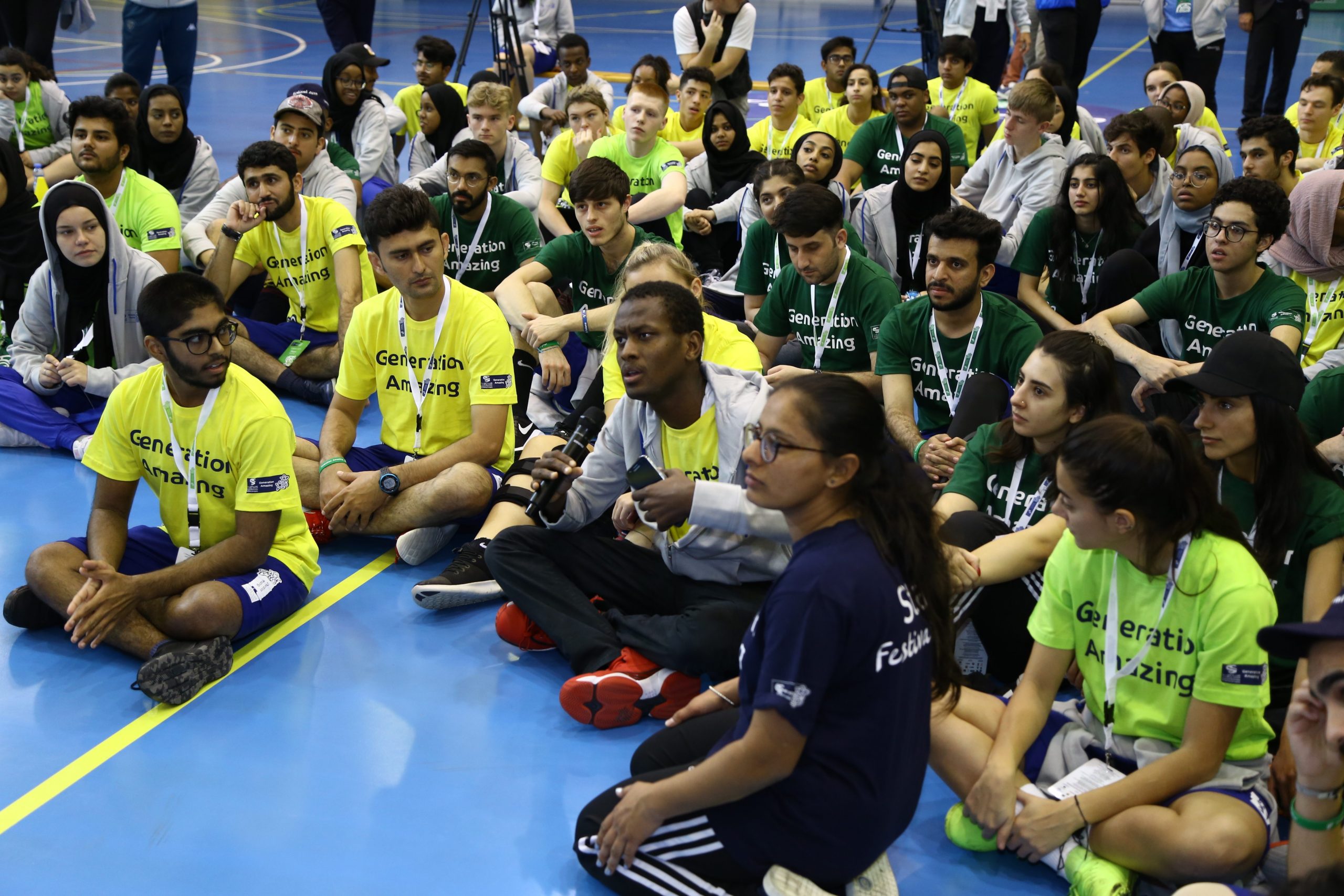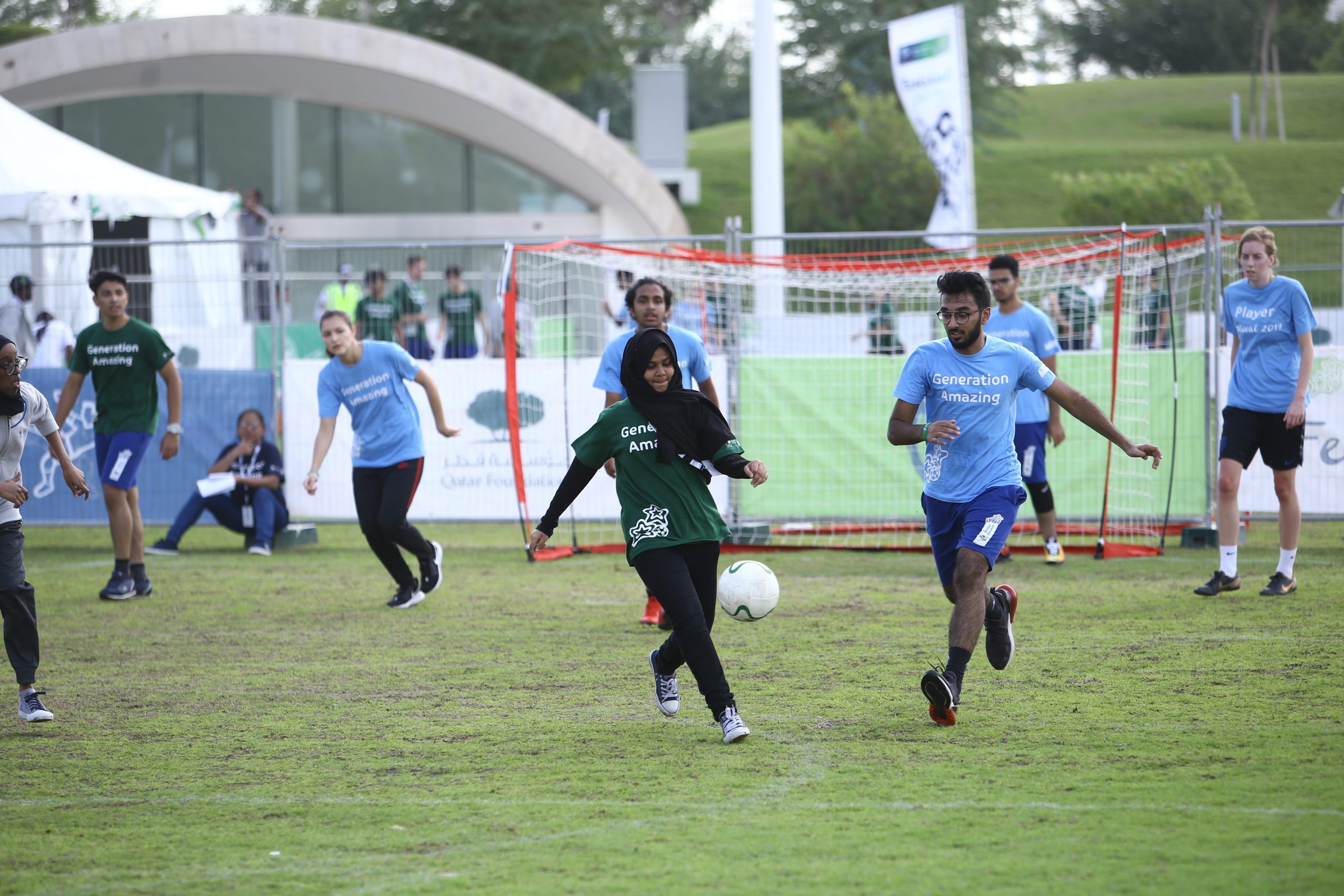By Ameera AlSaid and Sara Abadi
As Qatar gears up for the FIFA World Cup 2022, Doha News met with Generation Amazing to learn more about how the initiative is leaving its footprint around the world.
With ambitions of a long-lasting human and social legacy in mind, Qatar’s FIFA World Cup 2022 team has for years invested in programmes designed to leave a serious and effective social imprint for the world to see.
Cue Generation Amazing [GA]. Launched in 2010, the initiative was set up by the Supreme Committee for Delivery & Legacy to use the transformative power of football as a catalyst in positive social change for youth and communities, both within Qatar and on a more global scale.
The programme, which operates in alignment with the United Nations’ Sustainable Development Goals (SDGs) and the 2030 Qatar National Vision, says its underlying value is inclusion, irrespective of sex, religion, race or age, according to Moza Al Mohannadi, Marketing & Communications Director for Generation Amazing.
“Generation Amazing sees sport, and football in particular, as a tool and a fundamental instrument for achieving socio-economic and wider development outcomes for young people, refugee communities and vulnerable young people globally,” Al Mohannadi told Doha News.
Through its work, GA says it aims to positively impact 1 million people via its unique ‘football for development’ training sessions ahead of the upcoming 2022 world cup. This particular strand of the project provides a unique type of football training method – both on and off the pitch – which is delivered to a range of groups.
“Football for development is used to teach values including gender equality and inclusion, as well as life skills like communication, organisation, teamwork and leadership – all while keeping football at the heart of the programme,” Al Mohannadi said.
The method used, she said, is designed to address the specific developmental needs of a given community and is carefully adapted to each local context around the world. But whether in Europe, Africa, the Middle East or Asia, understanding football as a tool for learning remains at the centre of all programmes.
“Since launching GA, we’ve been to 28 communities and engaged with 500,000 people – working with both communities in Qatar and overseas in countries such as Brazil, Russia, Jordan, Oman, Lebanon, Nepal, India, Pakistan, The Philippines, Haiti, the United Kingdom, Syria and Rwanda,” Al Mohannadi noted.
As the programme expands, Al Mohannadi said, GA hopes to continue to inspire young people to accelerate their self-development journey. On average, it incorporates some 45% female and 55% male participants internationally, an impressive ratio that has continued to balance out over the years.

“Generation Amazing has had to change its mode of delivery of programmes. Launched during the COVID-19 pandemic, our Instagram account, @GA4good continues to stream live to ensure the GA programme remains accessible to everyone,” Al Mohannadi noted.
Read also: The parkour pioneers of Qatar
In the meantime, the team is gearing up for its second edition of the Generation Amazing Festival that is expected to take place in Doha, where youth between the ages of 16 and 25 will be invited to learn more about using football for social change and development.
“The next phase of Generation Amazing will also see us focus on sport for good and expand our programmes beyond football. We are excited for the upcoming months and what they bring,” the media and marketing director said.







